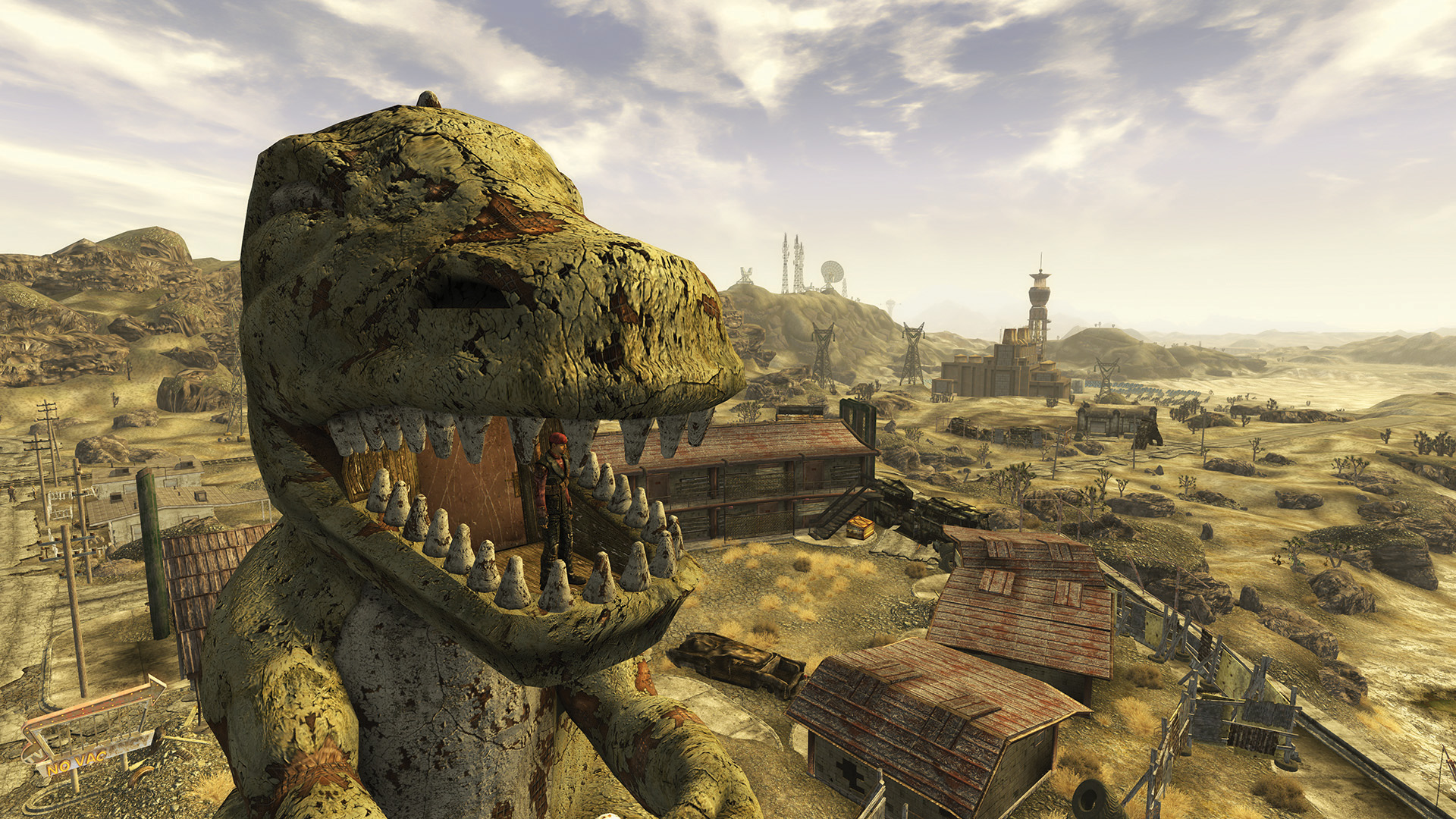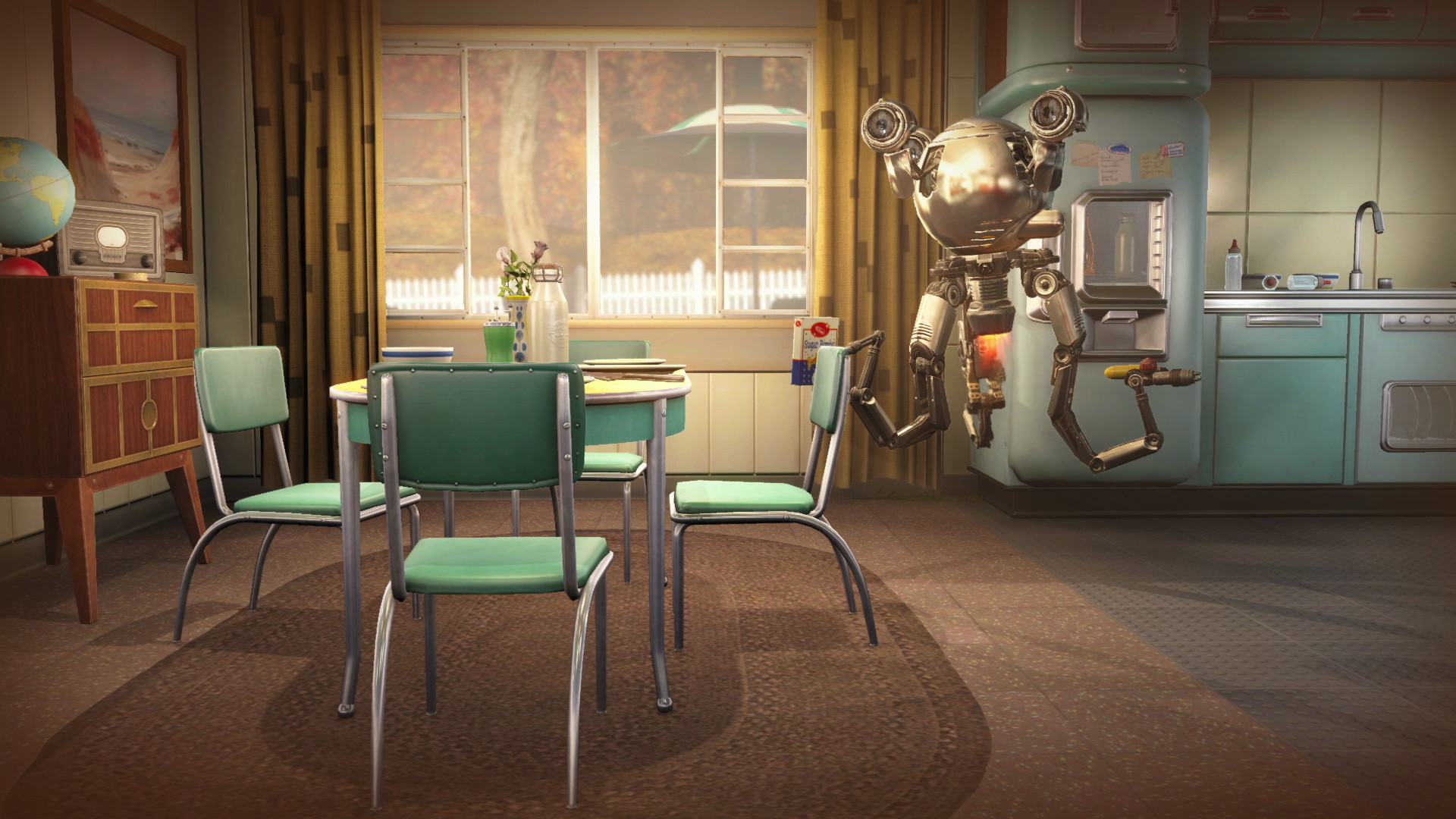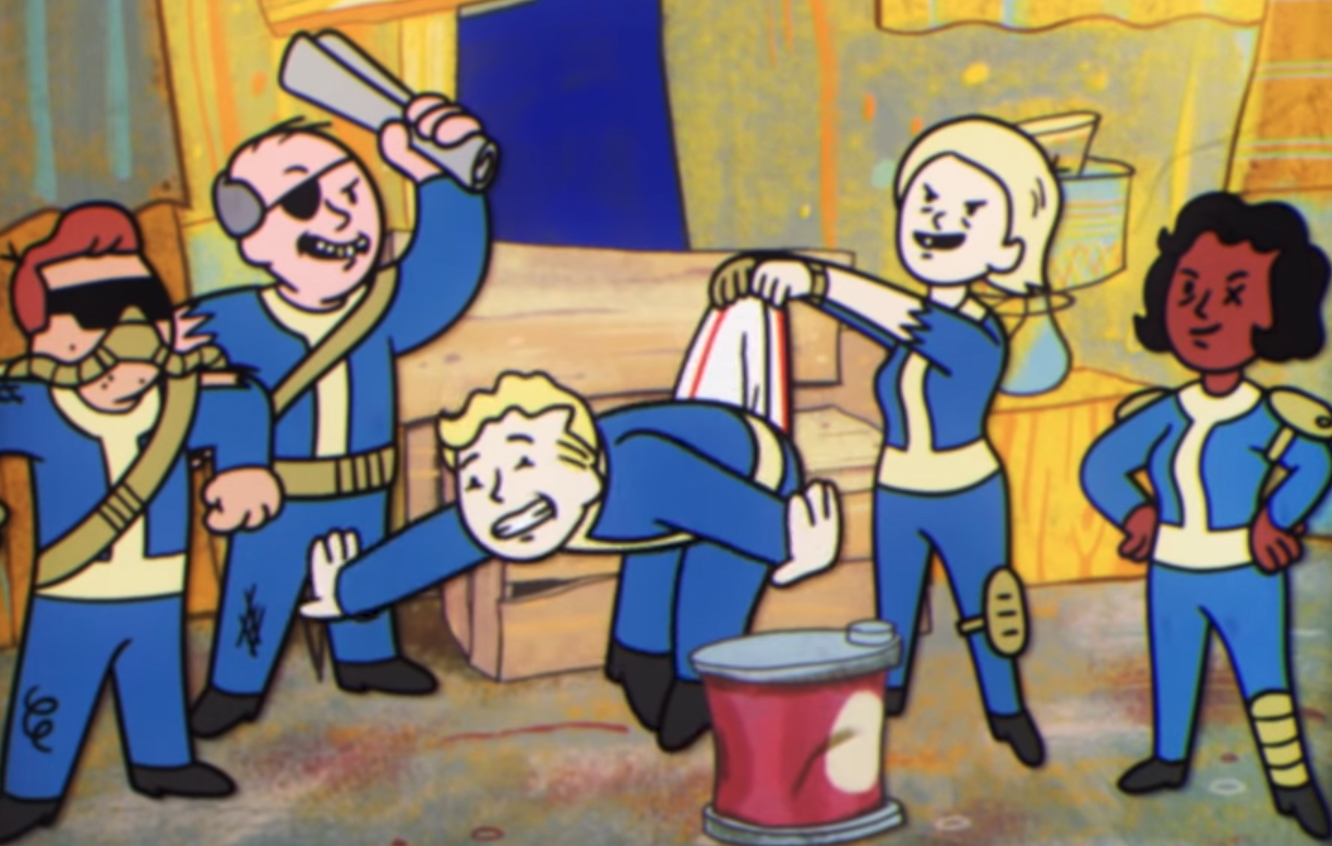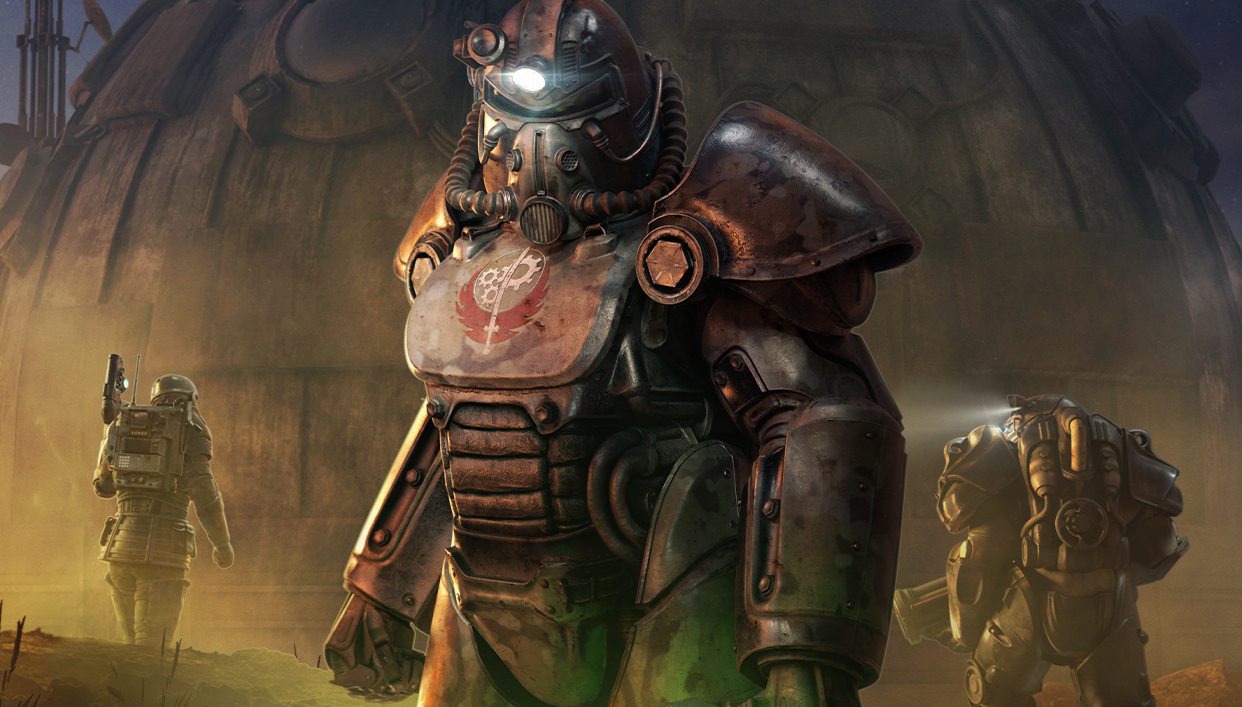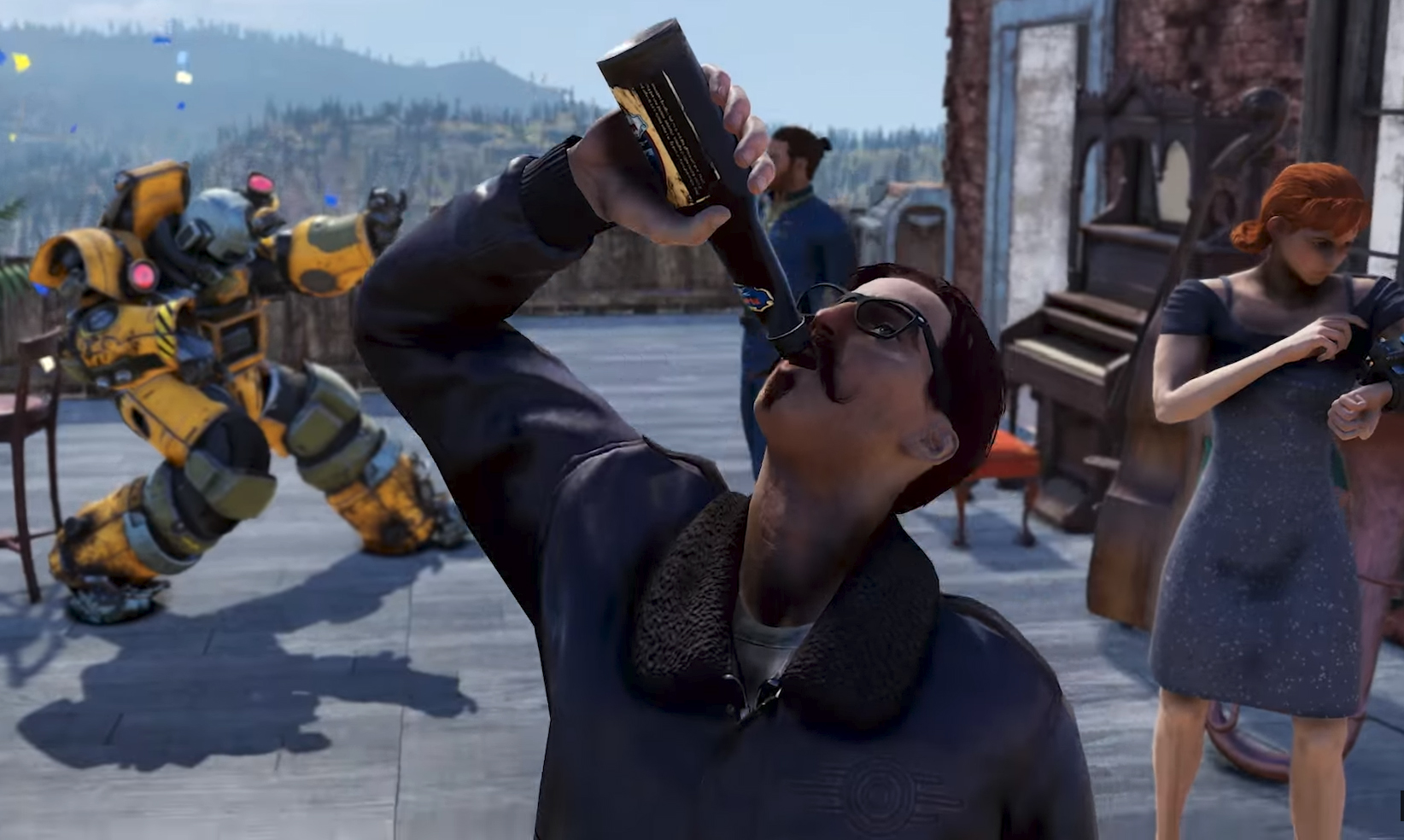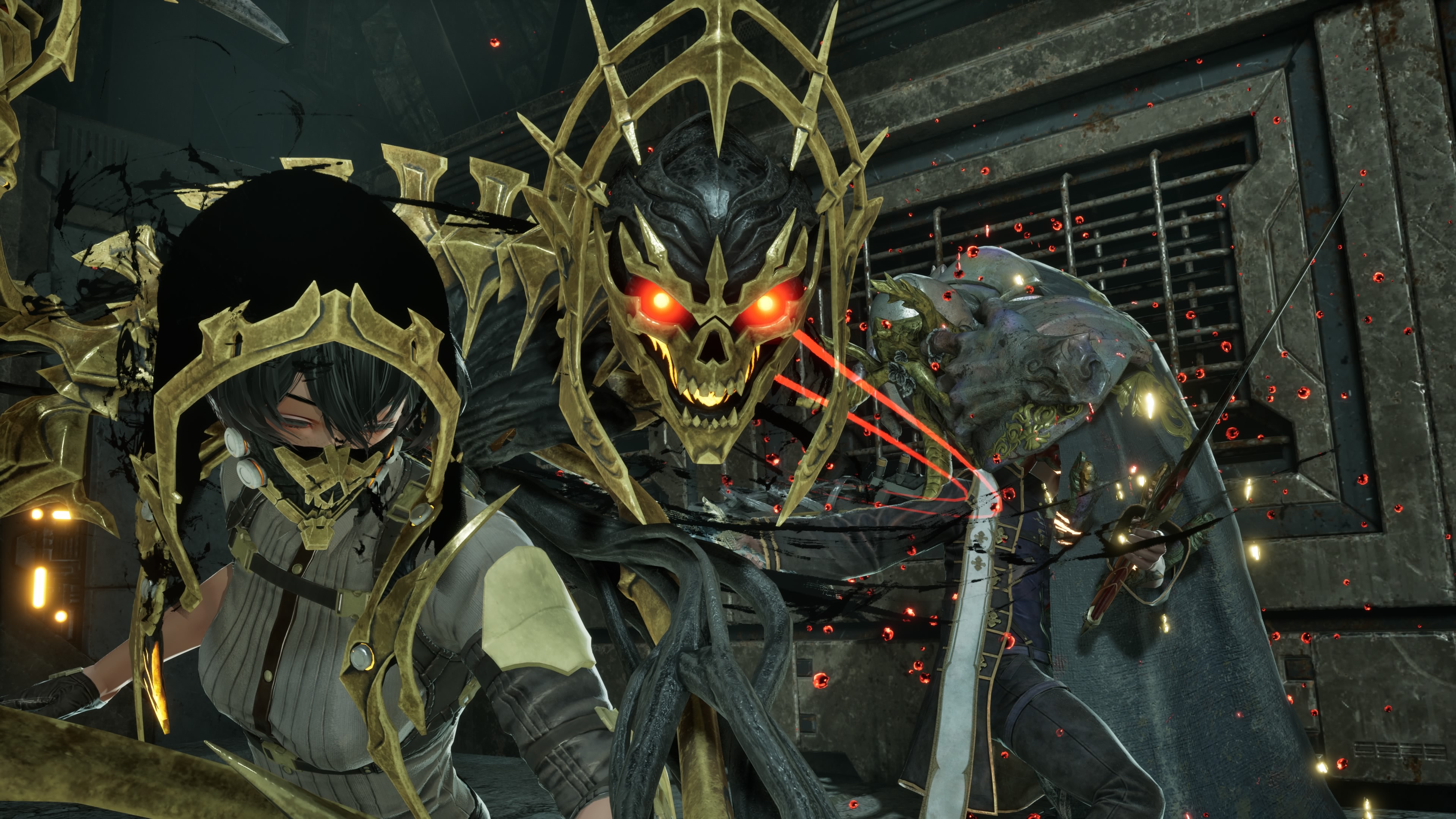The Fallout TV series: 5 things we want (and don't want) from Amazon's show
Extensive flashbacks? I never thought I'd say this, but yes please.

The Fallout TV series from Amazon Studios is now in production. We have a few details, like a cast that includes Walton Goggins, Kyle MacLachlan, and Ella Purnell, and we know some of the creators worked on shows like HBO's Westworld. We've even seen some leaked behind-the-scenes photos of the set and power armor. Neato.
But there's plenty we still don't know about it, like the plot, the characters, or even the specific setting. Is the Fallout TV series based on one of the games? Is it a completely original script? Is Dogmeat confirmed? Will Walton Goggins walk around in a crouch collecting garbage for 60 minutes each episode because another settlement needs his help?
Making a TV show based on a game is tricky. For every hit like Castlevania, Arcane, or The Witcher (which is really based on the books, though it's hard to believe the show would have been made if the games hadn't been so popular) there are TV adaptations like Halo that aren't quite as universally loved.
Luckily we're here to help any creators of the Fallout TV series who might just happen to be refreshing the PC Gamer website hoping for some ideas for their show which, again, is currently in production. Here are 5 things we want (and don't want) from the Fallout TV series.
1. Cool it on the desert
I don't want to bash deserts: they can be extraordinarily beautiful places even though they mainly consist of sand and little else. Production-wise, A Bunch Of Sand is a logical location for a show about the post-apocalypse since you don't have to worry about airbrushing out modern cities, lovely green trees, or other non-apocalyptic stuff in the background. And games like Fallout: New Vegas are entirely based in the desert, so it's also a logical choice for the show. Nothing says wasteland like a bunch of nothing as far as the eye can see.
But man, I hope the Fallout show goes easy on the desert locations because I am officially burned out on deserts. I mostly blame Star Wars for its baffling Tatooine fetish: It's the most boring, least science-fictiony-looking place in the galaxy and yet it's the centerpoint of so much of the recent Star Wars stuff, from Boba Fett to Obi-Wan. Can't a Death Star sidle up in orbit and just blow Tatooine into big sandy chunks already so we can move on from it forever? And don't forget Dune, the other big sci-fi thing of the past year that is currently becoming Dune, Part 2: More Desert. Give me ruined cities, skeletal suburbs, and trashed towns, please. I'm done with deserts.
2. Pre-war flashbacks, and lots of them
Normally I'm not a fan of extensive flashbacks in a TV series. I'm more interested in the urgency of the present storyline, and it can be kind of annoying when you're hoping to see current events transpire and unfold only to be yanked into a lengthy flashback that gives more context but doesn't really further the story. Too many flashbacks can feel like a plot is treading water rather than progressing.
Keep up to date with the most important stories and the best deals, as picked by the PC Gamer team.
But I'd really love to spend time in pre-war Fallout, something we don't get to do much of in the games. The bizarre retro-future of pre-nuked America is something I'd like to see in great detail instead of just a brief glimpse before the bombs start falling. I've spent so much time in the post-apocalypse that I think more than anything else I'd really love to spend some quality time in the pre-apocalypse. An entire episode, if possible.
3. Keep the darkness and gore, but also the humor
The Fallout games can be incredibly dark, from the basic premise (global nuclear war) to the finer details (human experimentation, cannibalism, child slavery, and so on). It's also incredibly gory, with plenty of bursting heads and flying limbs. There's even a perk called Bloody Mess that can occasionally make an enemy simply explode. It's gross!
But the darkness and gore work largely because the Fallout games also have a strong sense of humor that takes the edge off all that constant grimness. A show like HBO's Game of Thrones had very little humor and could leave you feeling bummed out after an episode. But another Amazon show, The Boys, is often dark and incredibly gory (not to mention brimming with highly relevant social commentary), but still has a sense of humor that makes the horrible, blood-drenched nightmare a lot of fun. Hopefully, the Fallout TV series will be bleak as hell and splattered with blood, but not take itself too seriously.
4. Use lore as springboard, not a roadmap
I don't know if you recall the controversy The Brotherhood of Steel caused in Fallout 76. Since 76 took place so early on the Fallout timeline, there was endless arguing from certain fans about how the BOS couldn't possibly be present on the east coast in 2102 when it didn't begin operating in California for another 30 years or so.
I agree it can be jarring when something doesn't fit into all the self-assigned lore homework you've been doing for the past couple decades, but there's another way to look at it. The benefit that made-up videogame history has over actual history is that you can go ahead and rewrite it and it doesn't actually hurt anyone.
There's plenty of examples of chucking out established lore and still making something entertaining. Marvel movies, for instance. Tony Stark is famously an alcoholic in the comics but that was only briefly touched on in a single (terrible) scene in one (terrible) Iron Man movie, and he's still an enjoyable character. Thanos originally killed half the galaxy because he was simping for Death, not because of overpopulation, which isn't as much fun as an explanation but still propels the movies along. In the comics, Hawkeye is a really interesting character, but in the movies they made him the most boring person in the entire world. Okay, that last one is a bad example.
My point is, you don't need to be strictly adherent to established lore to make an entertaining show, and there's no need to feel painted into a corner by a couple lines of text someone wrote down 25 years ago while making a videogame. While there may be some resistance, fans will accept changes to lore as long as the new stories are good ones.
5. A better economy than caps
Small request, but could we ditch the bottle caps as currency in the Fallout show? It made some sense originally, since caps were backed by clean water (the caps were used to seal bottles) and the NCR. But it doesn't make sense for every location in the country to use them as currency. Just because caps are metal and round like coins doesn't make them, y'know, actual coins. It's just a bit silly.
Bullets were originally considered as money for Fallout games, but that would leave players unwilling to fire their guns for fear of winding up broke. For a TV show, I think ammo makes far more sense as a currency than caps. In a post-apocalypse filled with feral ghouls and super mutants, bullets would be extremely valuable no matter where you were. Plus it would be fun after a firefight, with everyone left alive counting up how much money they just lost.

Chris started playing PC games in the 1980s, started writing about them in the early 2000s, and (finally) started getting paid to write about them in the late 2000s. Following a few years as a regular freelancer, PC Gamer hired him in 2014, probably so he'd stop emailing them asking for more work. Chris has a love-hate relationship with survival games and an unhealthy fascination with the inner lives of NPCs. He's also a fan of offbeat simulation games, mods, and ignoring storylines in RPGs so he can make up his own.
